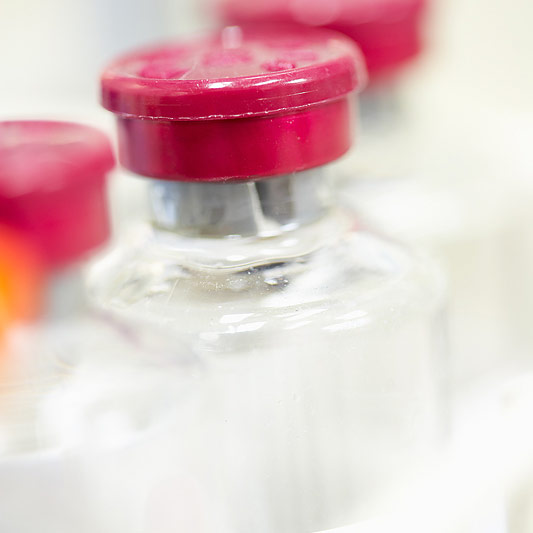WEDNESDAY, Feb. 19, 2014 (HealthDay News) — Infants who develop leukemia before they’re 1 year old have inherited gene mutations that put them at high risk for the disease, a small study suggests.
The findings might one day lead to new treatments for leukemia in infants, the study authors said.
The causes of cancer in babies have been difficult to pinpoint. For one thing, they haven’t been alive long enough to amass the number of gene mutations that can trigger cancer.
“Parents always ask why their child has developed leukemia, and unfortunately we have had few answers,” study senior author Dr. Todd Druley, a pediatric oncologist at Washington University School of Medicine in St. Louis, said in a university news release.
“Our study suggests that babies with leukemia inherit a strong genetic predisposition to the disease,” he explained.
Druley and his colleagues analyzed the genes of 23 infants with leukemia and the genes of 25 healthy infants. They discovered that the infants with leukemia inherited a combination of rare gene variants from both parents. On their own, these variants would not cause trouble, but the combination puts infants at high risk for leukemia, the researchers said.
The variants most often occurred in genes known to be associated with childhood leukemia, according to the study published online in the journal Leukemia.
Only about 160 infants are diagnosed with leukemia each year in the United States. While leukemia in older children often can be cured, about half of infants with leukemia die of the disease, the study authors noted.
With further research, it may be possible to find a way to remove harmful genes from infants who are susceptible to leukemia and replace them with healthy versions, according to the researchers.
More information
The U.S. National Library of Medicine has more about childhood leukemia.
Copyright © 2026 HealthDay. All rights reserved.

